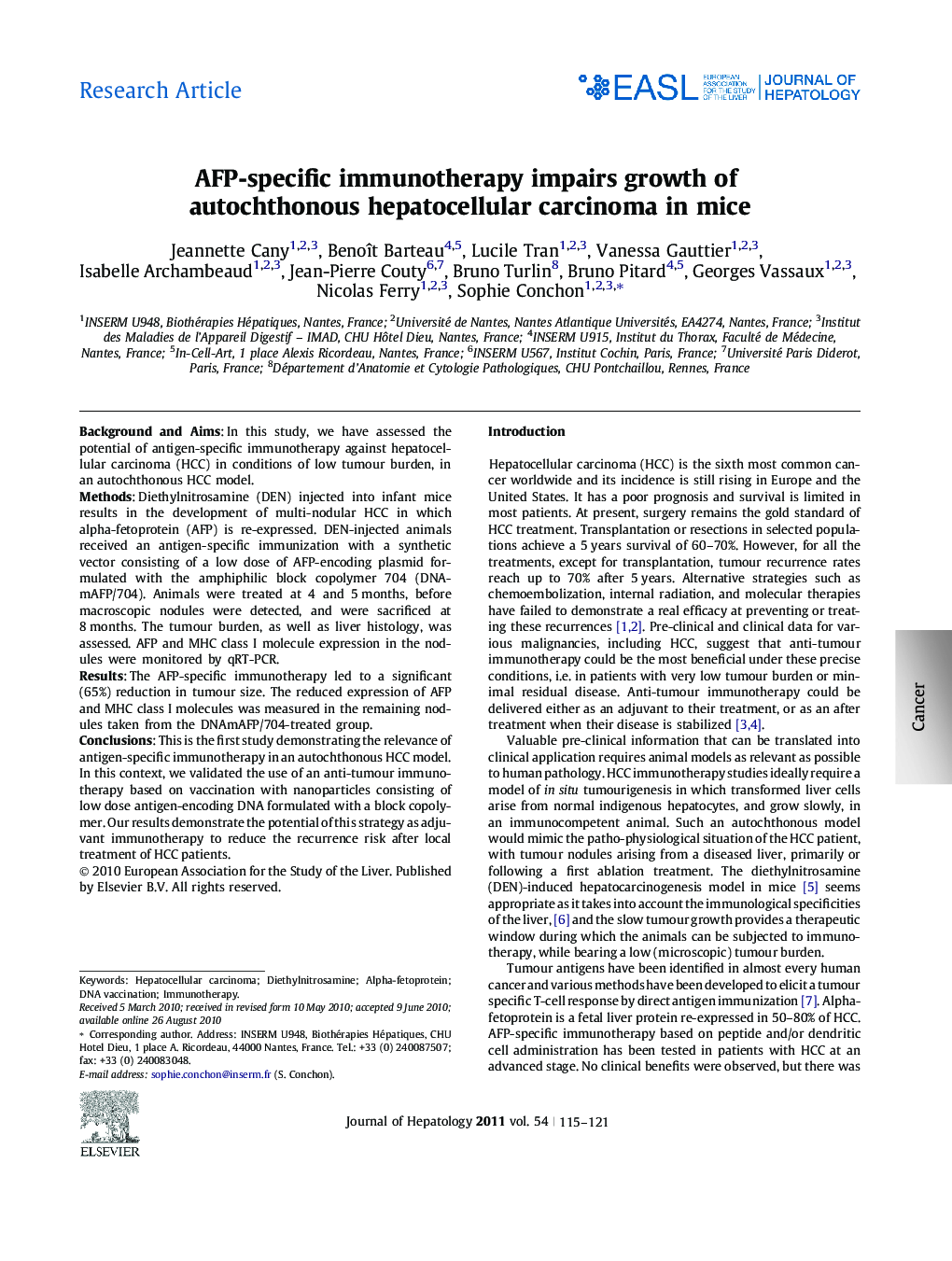| Article ID | Journal | Published Year | Pages | File Type |
|---|---|---|---|---|
| 6107475 | Journal of Hepatology | 2011 | 7 Pages |
Background and AimsIn this study, we have assessed the potential of antigen-specific immunotherapy against hepatocellular carcinoma (HCC) in conditions of low tumour burden, in an autochthonous HCC model.MethodsDiethylnitrosamine (DEN) injected into infant mice results in the development of multi-nodular HCC in which alpha-fetoprotein (AFP) is re-expressed. DEN-injected animals received an antigen-specific immunization with a synthetic vector consisting of a low dose of AFP-encoding plasmid formulated with the amphiphilic block copolymer 704 (DNAmAFP/704). Animals were treated at 4 and 5Â months, before macroscopic nodules were detected, and were sacrificed at 8Â months. The tumour burden, as well as liver histology, was assessed. AFP and MHC class I molecule expression in the nodules were monitored by qRT-PCR.ResultsThe AFP-specific immunotherapy led to a significant (65%) reduction in tumour size. The reduced expression of AFP and MHC class I molecules was measured in the remaining nodules taken from the DNAmAFP/704-treated group.ConclusionsThis is the first study demonstrating the relevance of antigen-specific immunotherapy in an autochthonous HCC model. In this context, we validated the use of an anti-tumour immunotherapy based on vaccination with nanoparticles consisting of low dose antigen-encoding DNA formulated with a block copolymer. Our results demonstrate the potential of this strategy as adjuvant immunotherapy to reduce the recurrence risk after local treatment of HCC patients.
